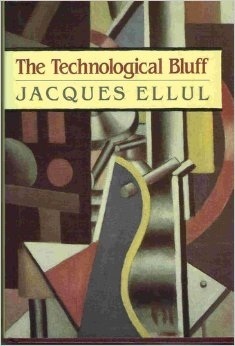
Future Shock
Book Description
What if the relentless pace of change is the greatest threat to humanity? In "Future Shock," Alvin Toffler plunges into a world unmoored by rapid technological advancements and social upheaval. As society races towards an overwhelming tomorrow, individuals grapple with visions of a future that feels both thrilling and terrifying. From the fallout of instant communication to the dizzying effects of constant innovation, Toffler reveals the profound impacts on our lives, beliefs, and relationships. Can humanity adapt to this unyielding wave of transformation, or will we be swept away in the tide of our own making?
Quick Book Summary
"Future Shock" by Alvin Toffler explores the alienating effects of rapid technological and social change on individuals and societies. Toffler argues that the accelerating pace of innovation and shifting societal norms create a state of disorientation and psychological stress, which he terms "future shock." He examines how the explosion of choices, transient relationships, and ever-advancing technology challenge people's ability to adapt. Toffler warns that without conscious strategies to manage this change, civilizational coherence and mental health may suffer. The book not only diagnoses the psychological fallout of future shock but also proposes ways to navigate a future filled with uncertainty, urging a balance between adaptability and preserving meaningful continuity in human life.
Summary of Key Ideas
Table of Contents
The Psychological Impact of Accelerated Change
Alvin Toffler begins by defining the phenomenon of "future shock"—the emotional and psychological disorientation caused by too much change in too short a period. He explains that the rapid advancement of technology, communication, and lifestyles outpaces humanity's natural ability to adapt, resulting in a collective anxiety. Toffler examines how past centuries saw slow, manageable changes, allowing societies and individuals to adapt organically. By contrast, the late 20th century brings unprecedented speed of change, creating a gap between human adaptability and reality.
Transience and the Breakdown of Community
A major theme is transience, where relationships, jobs, and living arrangements become temporary. Toffler illustrates how the traditional anchors of community, such as stable neighborhoods, lifelong employment, and enduring social ties, erode in favor of fluid, short-term engagements. This breakdown challenges the sense of identity and belonging. The churn in both personal and professional spheres makes it difficult for individuals to forge lasting attachments, resulting in loneliness and instability.
Information Overload and Decision Fatigue
Toffler delves into the idea of information overload, where a saturated information environment bombards individuals with choices and conflicting signals. He argues that the exponential growth of media, data, and options leads to decision fatigue and stress. People struggle to process vast amounts of input, often resulting in poor decisions, anxiety, or avoidance. This constant cognitive strain undermines personal satisfaction and can make navigating daily life overwhelming.
Shifting Values and Identity in a Rapidly Evolving World
The book also explores how the deluge of change reshapes values and self-identity. As social norms rapidly shift—driven by new family structures, technologies, and cultural patterns—individuals must continually redefine their beliefs and sense of purpose. Toffler reveals that this mutable environment can foster creativity and innovation, but also confusion and loss of meaning. The tension between adapting to change and retaining a coherent identity becomes a defining struggle.
Adapting and Preparing for the Future
In the concluding sections, Toffler proposes strategies for coping with future shock. He suggests learning adaptive skills, embracing lifelong education, and cultivating mental flexibility to better manage constant change. Communities and organizations, he argues, must design systems that prioritize human needs, offer stability amid innovation, and support meaningful connections. Toffler ultimately warns that unchecked acceleration could fracture society but remains hopeful that conscious adaptation can transform impending chaos into opportunity.
Download This Summary
Get a free PDF of this summary instantly — no email required.





